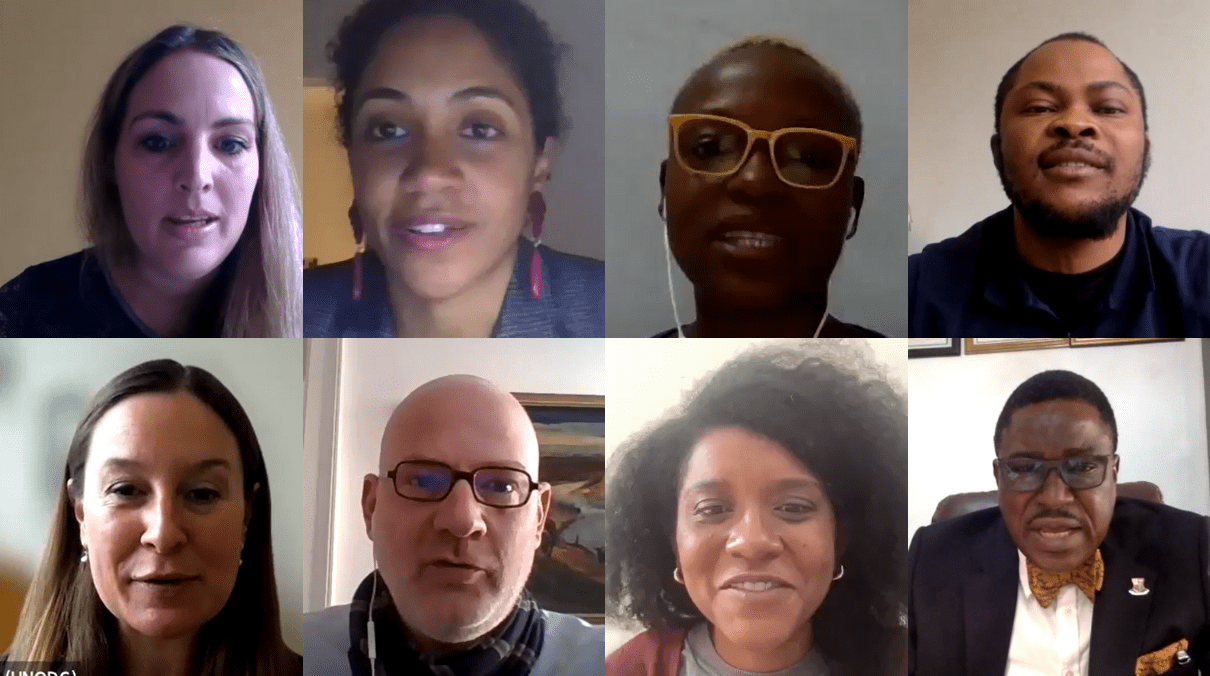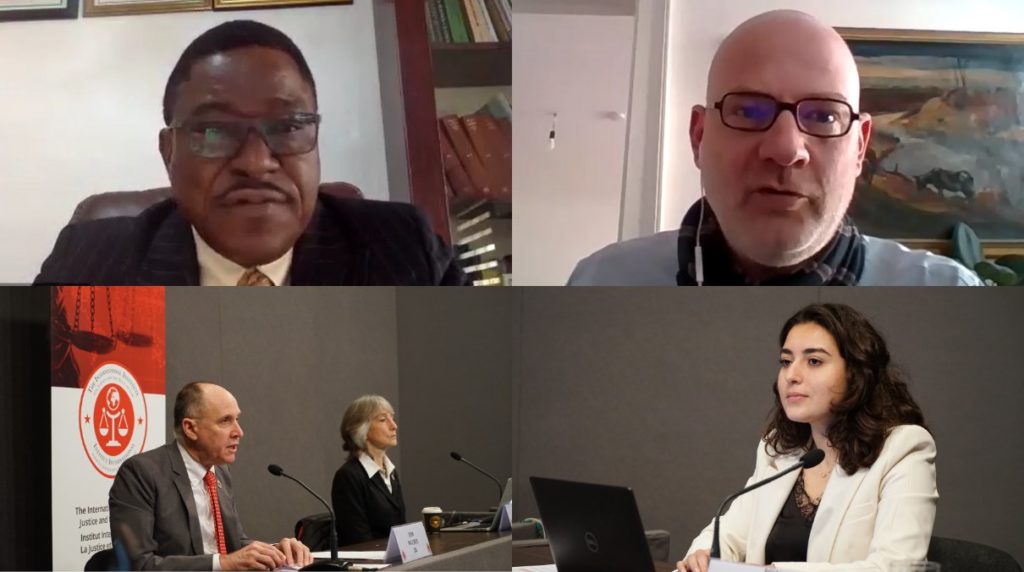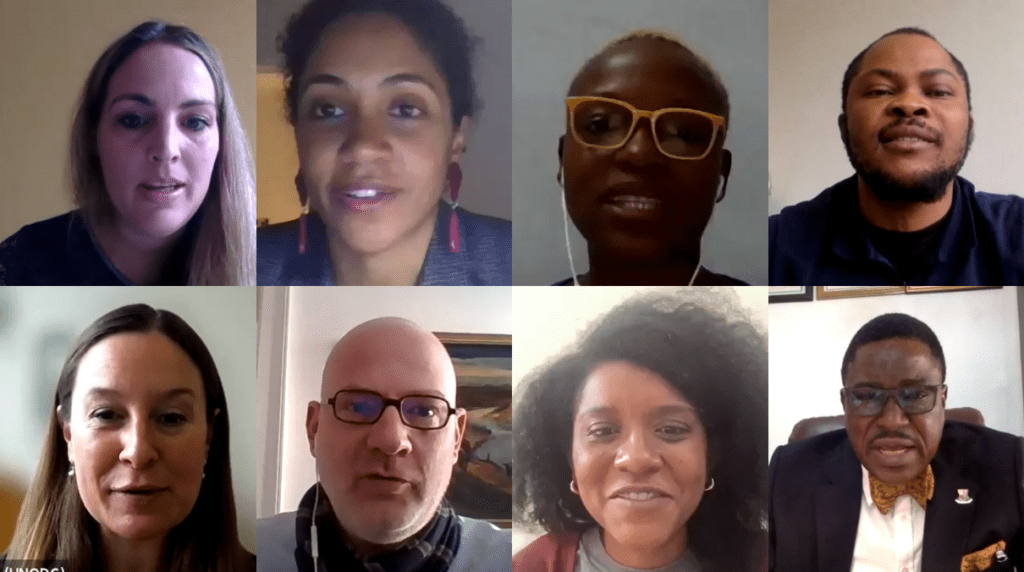
In March 2022, the IIJ convened its first Online Expert Group Meeting on Addressing the Impunity of Sexual Violence in the Context of Terrorism. This first expert meeting, supported by the Government of France, brought together 50 practitioners and national, regional and international subject-matter experts from the Federal Republic of Nigeria, Republic of Uganda, Republic of Chad and Republic of Mozambique.
Over the course of three days, practitioners discussed the efforts of their national jurisdictions in the investigation and prosecution of terrorism-related sexual violence cases and shared their findings regarding terrorist trends and typologies related to the use of sexual violence in terrorist insurgencies and means to integrate a gendered perspective in counter-terrorism strategies. State attorneys present at this meeting also outlined the challenges of operating in environments of legal pluralism, a mix of tribal, religious and statutory norms, and shared insights on how different units operate in an interdisciplinary manner in remote areas affected by conflict, thus contextualizing cases brought before them. A participating Judge remarked that ”Impunity at its core is not solely the result of legal shortcomings, there are always legal provisions that could be used to assure a victim-centric prosecution, impunity is often the result of the lack of will for the application of such legal provisions. Even with the most perfect legal system, with no adequate training, national efforts won’t amount to addressing the issue effectively”.

During the meeting, gendered strategies of Jihadist groups in Niger, Nigeria and Mali were detailed and dynamics of ISWAP, JAS, Boko Haram and Katiba Macina were consequently observed. As such, the engagement and disengagement strategies that played for the recruitment of women in these groups, alongside the operational roles they undertook were explained. Practitioners later explored the concept of Spiritual Security and same-sex violence in terrorism settings, especially as subjected on young boys and men. Additional intervention from Religious and Faith-based organizations clarified the role they can play in environments of systematic stigmatization for victims of sexual violence, often stranded in Internally Displaces Camps of active conflict zones.
On the third day of the event, practitioners examined the role of national CSOs, regional organizations and international UN systems in addressing the challenges of conflict-related sexual violence in their programmatic initiatives aimed at building a holistic care approach for victims of sexual terrorism. Intervention involved the work of the Neem Foundation, Dr Mukwege Foundation, UN team of Experts on the Rule of Law and Sexual Violence in Conflict, as well as the United Nations Office on Drugs and Crime in the work of the Terrorism Prevention Branch. The event was wrapped with a reflection on the pragmatic challenges in the application of the normative framework of conflict-related sexual violence in the context of terrorism based on an in-depth research conducted with national stakeholders, and direct frontliners in the fight against sexual violence in their countries.

IIJ Director of Programmes Ms. Gail Malone concluded this meeting saying that “Sexual Violence is not just the consequence of terrorism but is in most cases, a driver for extremism itself”. As we see the gendered strategies of terrorist groups continue to arise, the fight against terrorism-related sexual violence is still of the highest importance in any adequate counterterrorism response.
For more information on this workshop, please contact Programme Manager Joya Elias.
